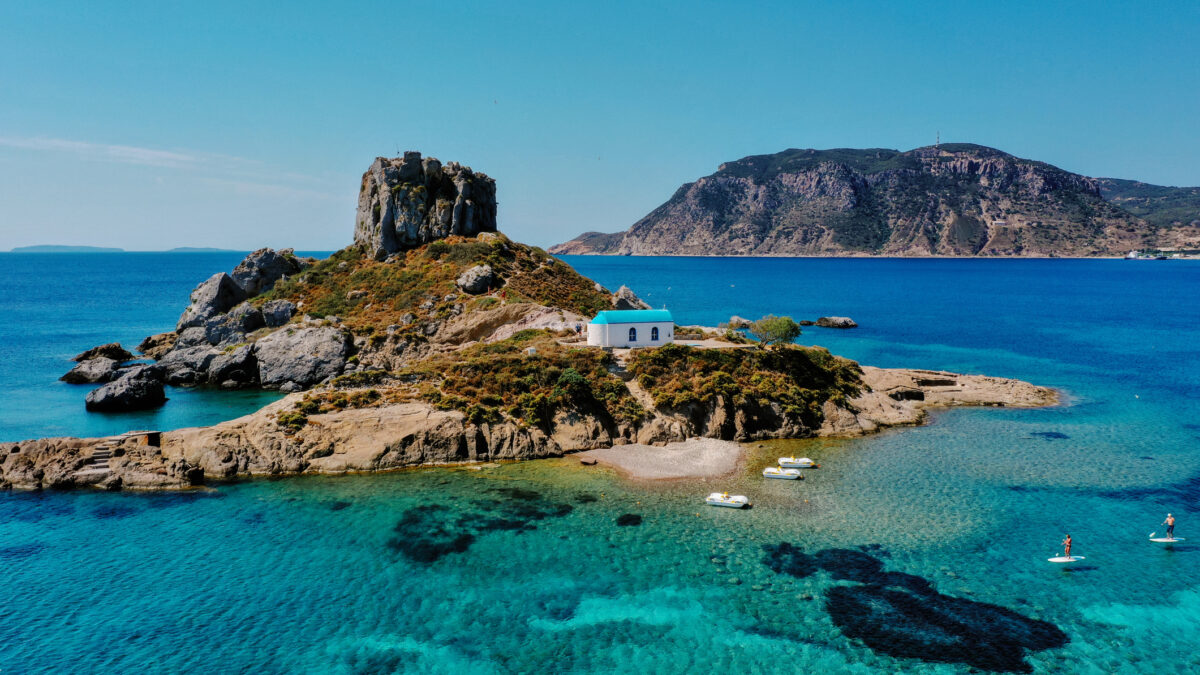Kos is located in the Southeastern Aegean and is the third-largest island in the Dodecanese, after Rhodes and Karpathos. It is often referred to as the ‘island of Hippocrates’, the father of medicine, as he was born there. In fact, the island’s association with Hippocrates is reflected in numerous important monuments and locations connected with his life. The island’s history is significant, as Kos was a major commercial and cultural center in antiquity.
Its capital and port, the town of Kos, impresses with its grandeur and historical heritage. The town is a living monument, with its ancient agora and great stoa, Hippocrates’ plane tree, and the ancient stadium, while the famous Asclepieion is located just 4 km away. The island’s rich past is also showcased at the local archaeological museum, which is well worth a visit. The modern town, centered on Eleftherias Square, boasts striking architecture and monuments, as well as bicycle paths.
Of course, the island’s main settlement is far from the only attraction; incredible natural beauty and fascinating historical sites abound on Kos. The settlement of Asfendiou, the hot springs, the mountain village of Zia, with its striking views, the castle-towns of Antimachia and Kefalos, and the Plaka forest, home to a peacock refuge, are just some of the highlights worth seeing on the island.
Blessed with extensive coastlines, Kos has many beautiful beaches with crystal-clear blue waters. Tigkaki, near the island’s main settlement, is worth visiting, as are more remote beaches such as Agios Theologos, Mastichari, Kefalos, Psalidi, and Kardamaina, all of which are sure to reward explorers looking for a swim.
Cuisine
Kos has a rich culinary tradition influenced by various cultures and based on the products of its fertile farmlands. Olive oil from the island’s large olive groves, wine from its vineyards – two of which are open to visitors for tastings – and honey are Kos’s main products. Kos also produces krasotyri, a unique cheese made from goat or sheep milk and aged in wine lees.
Some of the island’s standout delicacies include katimeria (fried round cheese-filled dough), pitaridia (handmade pasta, similar to lasagna, that is cooked in meat broth), pork with groats, and the ever-rarer pasa makarouna, a dish that is conceptually similar to pastitsio but with layers of thin phyllo dough instead of pasta.
How to get there
Kos is an island in the Dodecanese and is accessible by frequent ferries from the port of Piraeus as well as by air.










